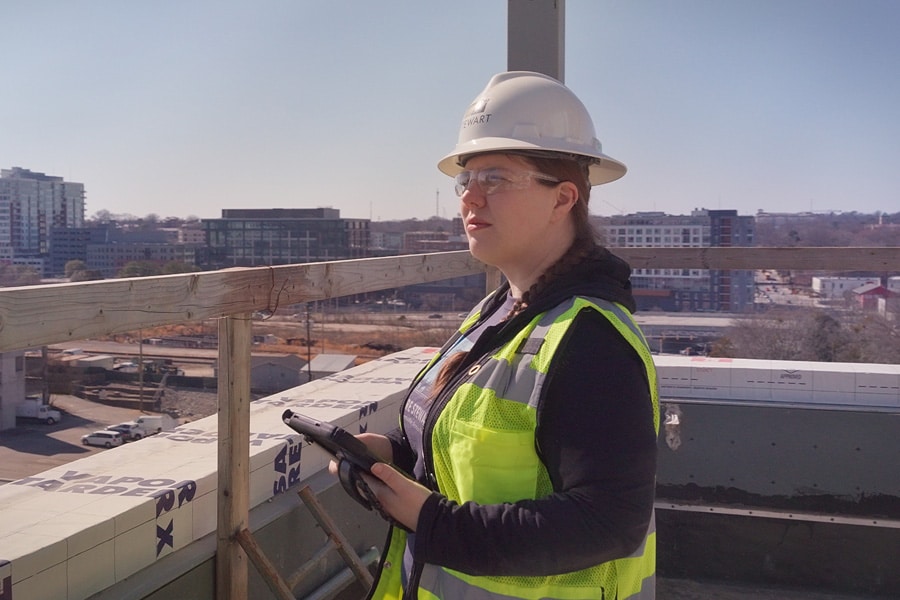The construction industry is tough.
Whether a construction, architecture or engineering worker is in an office or out in the field, workdays are long and deadlines are tight. All projects are high-stakes. Oftentimes, millions of dollars are on the line.
“There is always a push in the construction industry to get the job done faster,” said journeyman concrete carpenter Marc Golembiewski. “I will always look for the fastest way to achieve my daily tasks without compromising quality, but you can only do so much in a 12-hour day.”
Construction consultant Kelly Shauna knows the pressure of the industry well. She regularly works 90-hour workweeks. “Construction is a hard industry to streamline, with a lot of variables,” Shauna said. “It takes a very specific type of person to be able to handle it, and when one person fails on your team, the whole project can suffer.”
These conditions can lead to a deluge of problems regarding mental health in the construction industry. Aside from worker burnout, construction workers have to deal with the physical toll and pain that often comes from their jobs.
Such pain can have negative consequences on mental health issues in the construction industry, as nagging injuries begin to affect workers’ overall quality of life outside of the job as well.
An industry-wide problem
There are a number of reasons why construction leaves workers particularly vulnerable to mental health issues.
“Construction is a high-risk population,” said Cal Beyer, the vice president of workforce risk and worker well-being at construction risk management company CSDZ. “It’s an old school industry with a tough guy, tough gal culture and work that’s often physically demanding.”
The ongoing COVID-19 pandemic has increased construction workers’ stress, as the industry—which was quickly designated as an “essential” business—navigates how to continue its work efficiently without jeopardizing workers’ safety.
“Almost every group is experiencing increased or amplified stress, anxiety and all the ripple effects associated with COVID,” Beyer said. “One of the strengths of our industry is that there’s a lot of bonding and community building that happens on the jobsite; lots of dialogue, conversation and banter. But physical distancing is increasing barriers in these spaces and making it more difficult for coworkers to communicate.”
Added to that is an increase in workers’ financial insecurity. “Our society lives paycheck to paycheck in many sectors, and the threat of loss of income, the threat of jobsites being shut down, projects being stalled or delayed creates anxiety,” Beyer said.
Making these problems more difficult to address is an industry-wide culture that isn’t entirely comfortable being open about workers’ mental health.
Technician Claire Cooper knows this culture well. “From my experience, there’s a real old-fashioned culture, which prevents people from talking about their feelings or sharing worries,” Cooper said. “You can’t just expect people to come and tell you if they’re struggling; you need bosses or colleagues to take an active interest in others’ well-being.”
Actions to take
On an individual level, Beyer said it’s important that construction workers take the time to address their mental health. “As an industry, we need to spend time teaching people self-care practices and really have conversations about well-being,” Beyer said. Teaching people about proper nutrition, hydration, reducing alcohol intake and the importance of sleep are great places to start.
Beyers suggests workers should practice preventative brain health by adding mindfulness, a type of meditation practice, to existing morning “stretch and flex” programs that have gained popularity over the last decade in the industry. “If we would go beyond what we’re doing with those daily huddles to build in mindfulness techniques, I think that will help people embrace wellness,” Beyers said.
For many workers, mental health relief can come in surprisingly simple forms. “Before COVID-19 I would get monthly manicures/pedicures,” said civil engineer Justine Fraser. “I also learned to let my bosses and co-workers know when I’m at capacity with workload. And I’m no longer afraid to say no, whether it’s no to a late meeting or no to more workload. I love my job, but with two small kids, I need to fill my cup first.”
Carpenter and plumber Rachel Carter agrees. “I love my hands-on work, but it is back breaking at times. I like to unwind with a quiet peaceful spot by the river or trees after all the site noise. And a good bath really soothes the muscles.”
Enabling communication
Beyer said that one of the most important things that employers can do to support mental health in the construction industry is to emphasize the need for constant communication.
“Look for ways to establish meaningful contact,” Beyer said. “Reach out to the folks that seem like they’re isolated. Set up a text and just intermittently check in on people. Ask people to check in on each other. Put your people work before the paperwork and let people know, ‘Hey, I’m listening; I’m here, I’m available.’”
Project manager Samantha Gilbert said that this kind of focused, organizational implementation is important. “If there isn’t a management training process in place for senior managers to recognize when someone is struggling, then the individuals are unlikely to go to their line managers and ask for help,” Gilbert said.
Beyer suggests that employers pay special attention to mental health in construction by alerting their teams to the importance of using their employee assistance programs, which some workers might not know are available. An employee assistance program (EAP) is an employee benefit program that helps employees with personal or work-related problems that might be negatively affecting their job performance as well as health, mental and emotional well-being.
“There are times where there are services available, but people don’t realize it,” Beyer said. ”Do a toolbox talk on what your employee assistance program is and how to use it. Do a toolbox talk on mental health and well-being. Do a toolbox talk on self-care practices. Talk about what’s under the hardhat, how gray matter matters.”















